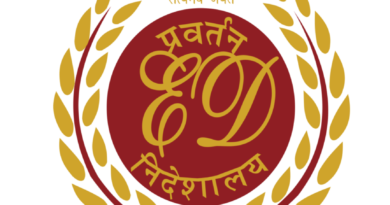SCBA Demands Contempt Proceedings Against BJP MP Nishikant Dubey for Remarks Targeting CJI Sanjiv Khanna
(Judicial Quest News Network)
In a strongly worded resolution passed on April 22, the Supreme Court Bar Association (SCBA) has condemned recent comments made by Bhartiya Janata Party (BJP) Member of Parliament Nishikant Dubey against the Chief Justice of India, Justice Sanjiv Khanna. The SCBA described Dubey’s remarks as not only “defamatory” but also amounting to “criminal contempt of court,” urging the Attorney General for India, Mr. R. Venkataramani, to grant consent for initiating contempt proceedings.
According to Indian law, specifically the Contempt of Courts Act, 1971, a private individual can only initiate criminal contempt proceedings in the Supreme Court after obtaining the written consent of either the Attorney General or the Solicitor General. In this case, a concerned lawyer has already submitted a formal request to the Attorney General, seeking permission to file a contempt petition against Dubey.
The SCBA, in its resolution, noted:
“We do hope that the Attorney General, entrusted with the responsibility of upholding the Constitution and the rule of law, will grant the necessary consent to safeguard the dignity of the Supreme Court and its presiding officer, the Hon’ble Chief Justice of India, Mr. Justice Sanjiv Khanna.”
The controversy erupted following Dubey’s remarks during an interview with Asian News International (ANI) last week, in which he accused CJI Khanna of being responsible for “all civil wars in the country.” The statement, widely criticized across the legal and political spectrum, has been viewed as a direct attack on the independence and authority of the judiciary.
Legal experts have pointed out that such statements, especially when made by public representatives, risk undermining public faith in the judiciary and could have long-term repercussions on the democratic framework.
Dubey’s comments came in the wake of two high-profile Supreme Court cases that have drawn sharp responses from certain political quarters:
- The Waqf (Amendment) Act, 2025: In this case, a bench led by CJI Khanna raised serious concerns about the recently enacted amendments. The Court questioned the government’s position and asked for clarity on provisions related to the formation of Central Waqf bodies and the status of previously declared Waqf properties. Following this, the Centre gave an assurance that these provisions would not be acted upon for the time being.
- Timelines for Governors’ Assent to Bills: In another significant ruling, the Supreme Court directed that Governors must act within a reasonable time frame when assenting to state legislation. The Court urged that decisions should not be delayed on grounds of political convenience.
These rulings, seen by some in the ruling party as judicial overreach, have become flashpoints in an ongoing tussle between the executive and judiciary. Several BJP leaders have recently accused the judiciary of stepping into the domain of the legislature and executive, further intensifying tensions between the branches of government.
However, the SCBA emphasized that criticisms should be rooted in constitutional discourse and not cross into contemptuous territory. “Personal attacks on the Chief Justice are intolerable and strike at the very heart of judicial independence,” said a senior SCBA member, speaking on condition of anonymity.
The legal fraternity now awaits the decision of Attorney General Venkataramani, whose response will be pivotal in determining whether formal contempt proceedings against Nishikant Dubey will move forward.
[Read Resolution]



